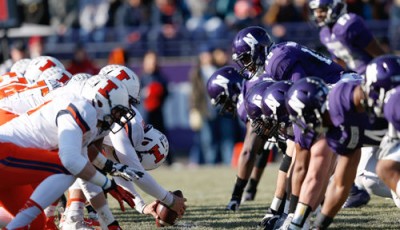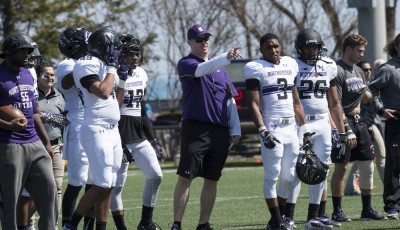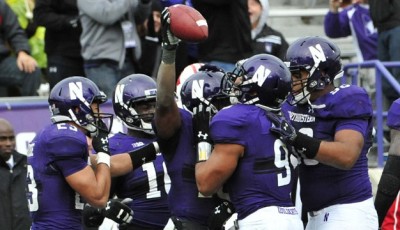Northwestern football union petition dismissed by labor board
After a year-and-a-half of uncertainty, the National Labor Relations Board ruled that Division I football players at Northwestern University can’t unionize, declining to assert jurisdiction and dismissing the petition to unionize. But a group of players brought a case to the board seeking a union to negotiate for a share in the profits from ticket sales, television contracts and licensing deals. The majority of the schools are public universities, which fall outside of the board’s jurisdiction.
Monday’s decision does not make an official ruling on whether student-athletes are employees; it merely dismisses the NLRB’s jurisdiction and thus the players’ right to unionize.
In April 2014, 76 Northwestern players – including quarterback Kain Colter – voted to form a union. Those ballots were impounded while the full NLRB considered the case.
According to NBC Sports, the move to unionize college sports can not appeal the National Labor Relations Board decision.
After the NLRB Chicago office ruled in their favor, the Northwestern football team voted on whether or not they should form a union under the CAPA. “And I think by what we did, our voice out there really helped get things going forward”.
Among the board’s findings in a unanimous 16-page opinion was that certifying the players’ petition “would not promote uniformity and stability in labor relations”, and that allowing Northwestern players to bargain with a single employer over policies that apply throughout the National Collegiate Athletic Association would potentially upset the balance of competition.
Under U.S. law, an employee is regarded as someone who, among other things, receives compensation for a service and is under the direct control of managers. While several other lawsuits brought against the NCAA – including the famed one headed up by former UCLA basketball star Ed O’Bannon – are or were focused on receiving a cut of broadcast and advertising revenue, the Northwestern players were concerned mostly with insurance coverage for current and former athletes, a trust fund to assist former players finish their degrees and an increase in scholarship value.
That same month the NCAA altered its governance, granting partial autonomy to the five richest conferences. At least two states-which, between them, operate three universities that are members of theBig Ten-specify by statute that scholarship athletes at state schools are not employees.
Northwestern, the Big Ten and the NCAA all argued against the unionization effort, saying that lumping college athletes into the same category as factory workers would transform amateur athletics for the worse.











